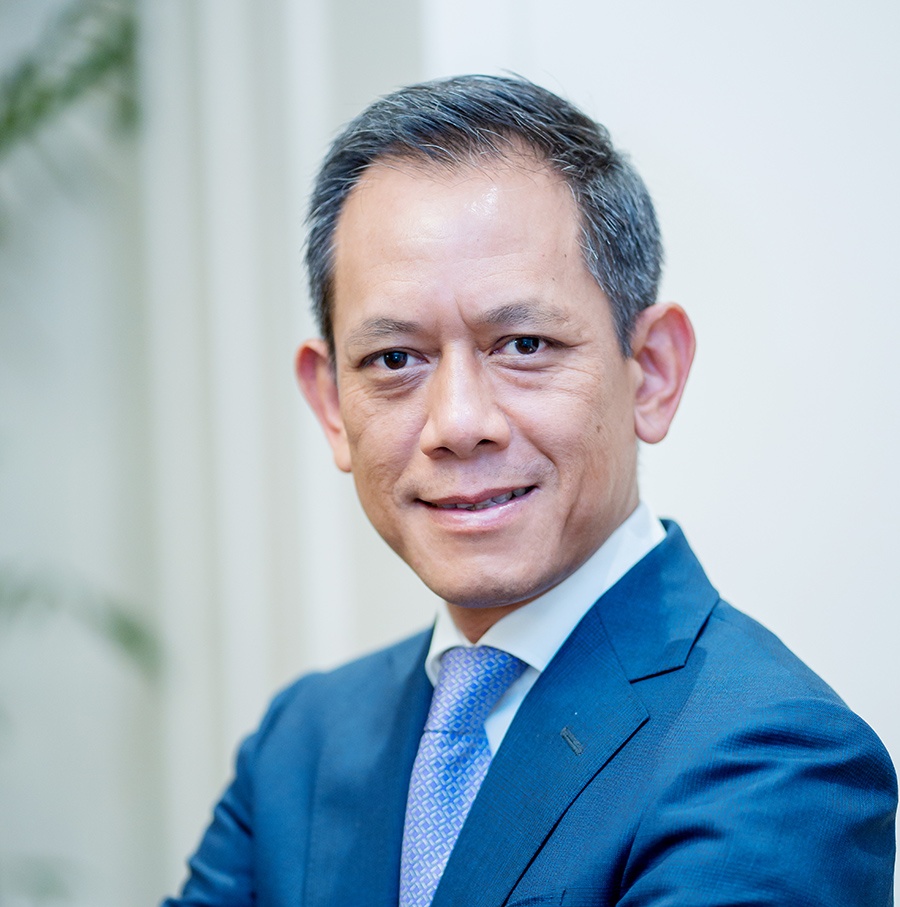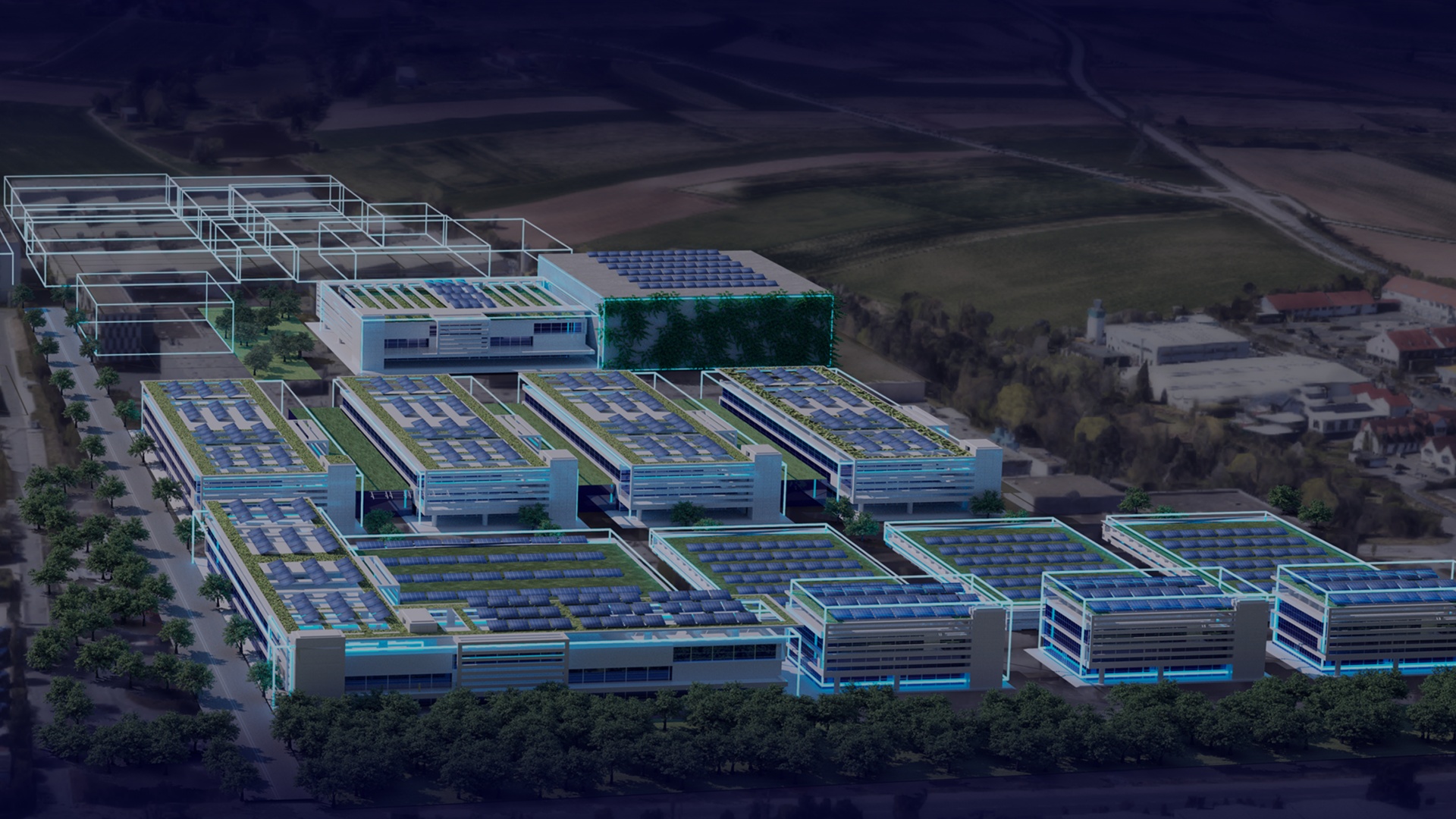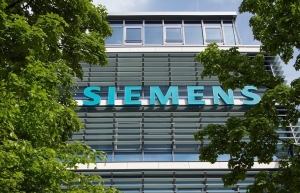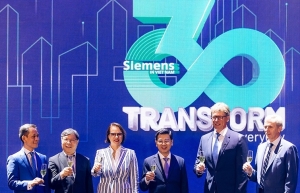Sustainability: it’s time to step up and act together
What are Siemens commitments towards sustainability?
 |
| DR. Pham Thai Lai |
Sustainability has been at the heart of what we do for a long time and is a key part of our strategy. It is deeply embedded in our business activities, investment decision-making, and governance.
Siemens has been a pioneer in sustainability for many years and is continuing to accelerate its commitments. It has become one of very few companies worldwide to sign up for four ambitious sustainability initiatives at once. We’re supporting three initiatives led by the Climate Group (RE100, EP100, and EV100) and, in addition, we joined the Science-Based Targets initiative. To limit global warming to 1.5 degrees Celsius, we commit to a science-based reduction pathway along our entire value chain. In this way, we’re ensuring that our climate-protection efforts are in harmony with the Paris Climate Agreement’s highest level of ambition.
In 2015, we were the first global industrial company to commit towards carbon neutrality by 2030. By setting this goal, we wanted to express our firm belief that take leadership actions in the fight against climate change. Meantime, we have more than halved our CO2 footprint in regard to our own operations.
We are accelerating the reduction of carbon emissions from our own operations by setting ourselves a pathway goal for a 55 per cent reduction in emissions by 2025, compared to 2019 levels. In addition, and as part of our ongoing 2030 net-zero operations commitment, we are setting a new and enhanced target of achieving a 90 per cent emission reduction by 2030. We are confident that we will meet this goal by leveraging our own offerings across our portfolio.
How has Siemens been contributing to achieving the UN’s Sustainable Development Goals (SDGs)?
The 17 SDGs have become fixtures of our everyday business. Siemens deploys its technology portfolio to support the public and private sectors in the digital transformation of industry, building and network infrastructures, mobility, and healthcare, and thus can tap extensive business opportunities for value-enhancing growth. At the same time, we offer cost-effective, innovative solutions for the transition to carbon neutrality.
From a global standpoint, there are four SDGs where we have a significant impact. Goal 7 is ensuring access to affordable, reliable, sustainable, and modern energy for all. Our business portfolio covers the entire spectrum of applications for modern smart grids and energy distribution systems.
The rapid expansion of decentralised energy structures powered by Siemens technology creates a more diverse energy mix and improves the security of energy supplies. The Internet of Energy and data-based technologies foster energy intelligence and lead the way towards a sustainable energy landscape. Our technologies facilitate access to clean, reliable, low-carbon energy.
Goal 9 involves building resilient infrastructure, promoting inclusive and sustainable industrialisation, and fostering innovation. We support sustainable industrialisation and with our engineering and knowledge of numerous sectors and digital technology, we help our business partners across the entire value chain – from design to production, and from operations to maintenance.
Global partnerships are key to innovations. A large percentage of our customers and suppliers are smaller enterprises. We have adopted sustainability as an additional strategic imperative for our investment decisions.
Meanwhile, making cities and human settlements inclusive, safe, resilient, and sustainable is Goal 11. Siemens is a trusted partner for municipal governments, offering solutions across all infrastructure domains to make cities more efficient, sustainable, and resilient – for instance, with intelligent transportation solutions, efficient and safe buildings, and smart city initiatives leveraging the power of digitalisation.
Finally, Goal 13 is to take urgent action to combat climate change and its impacts. With our portfolio, we help our customers lower their emissions and thereby achieve their decarbonisation goals. Siemens was one of the world’s first industrial firms to commit to making its own business activities carbon-neutral by 2030.
Besides aiming to reduce emissions from our operations without Siemens Healthineers (SHS) by 55 per cent by 2025 and by 90 per cent by 2030 compared to 2019, we also strive to lower all emissions associated with us – from our supply chain to the entire use phase of our products. Without SHS, we are committed to a 20 per cent reduction in emissions in its supply chain by 2030 compared to 2020 and aims to achieve a CO2-neutral supply chain by 2050.+
 |
How does Siemens back its customers to maximise their contributions to the health of the planet?
We have been developing technology with purpose for more than 175 years. Our portfolio helps customers achieve their sustainability targets with comprehensive, tailored solutions for factories, buildings and power grids as well as the transportation and healthcare sectors.
Our technologies help customers to transform the industries that form the backbone of economies and societies. Through technology with purpose, we enable our customers and partners to maximise their contributions to the health of our planet.
For industrial customers, our products, systems, solutions, and services enable customers to optimise their entire value chain – all the way from the design and development of sustainable products and processes to production and operations.
Our solutions target gains in energy and material efficiency and harness the power of digitalisation to build the next level of transparency on CO2 and other metrics that help steer our business activities towards ever greater sustainability.
To support infrastructure customers, our portfolio ensures the seamless integration of renewable energy into power grids, the deployment of electromobility, increased energy efficiency in buildings, and greater transparency in measuring infrastructure performance with digital tools and data management solutions.
Our financing solutions foster decarbonisation and resource efficiency, such as pay-per-use or leasing solutions linked to energy savings. Smart financing models are helping pave the way for new, clean technologies, novel business models, and sustainable innovation.
Siemens also contributes to sustainable transportation with its broad spectrum of products, solutions, and services related to rail vehicles, infrastructure, automation, electrification, and digitalisation. Whereas, by constantly bringing breakthrough innovations to market, we help healthcare professionals to deliver high-quality care, leading to the best possible outcome for patients.
What actions are needed from the Vietnamese government and companies to set Vietnam on path to sustainability?
What Vietnam has committed and achieved so far is applaudable, but there are still many things to be addressed and actions to be taken. First and foremost, business and government need to join forces – they need to work together more constructively and effectively to raise the level of awareness, action, and ambition.
Governments should support individuals and industries that are ready to embrace sustainability. Policymakers should reward companies that publicly commit to bold actions. They should create incentives for companies that embark on sustainability, like renewable energy, greater efficiency, and related low-carbon strategies. Policymakers should respond with clear and strong long-term policies that create a safe operating environment for investments and goal-setting.
Companies should be cooperative and compliant. They should consider sustainability a strategic business imperative. And they definitely must implement actions that include measuring and reporting on the full scope of their emissions.
The sustainability challenges of our times are far too daunting for any single actor to master them. They call for us to work with stakeholders from around the world. We believe that working in ecosystems is the best way to jointly address sustainability challenges. We are confident that technologies that boost efficiency, productivity and transparency can pave the way to a more resilient and sustainable future. And now, when technologies are already available, it’s time for us to step up and act together.
 | Siemens to invest over $1.1 billion in Germany On July 13, in the presence of German Chancellor Olaf Scholz, technology powerhouse Siemens announced the establishment of its new Technology Campus in Erlangen, Germany, with an investment of around $560 million for the expansion of its development and manufacturing capacities. |
 | Siemens profit surges despite energy woes German industrial giant Siemens on Thursday said large orders for trains boosted earnings in the third quarter, helping to offset problems in its troubled wind energy business. |
 | Siemens celebrates 30 years in Vietnam Siemens held an Appreciation Dinner on August 16 in Ho Chi Minh City to mark the 30th anniversary since its establishment in Vietnam and to express its sincere gratitude to its Vietnamese partners for their unwavering support and trust in the company over the past three decades |
What the stars mean:
★ Poor ★ ★ Promising ★★★ Good ★★★★ Very good ★★★★★ Exceptional
Related Contents
Latest News
More News
- PM outlines new tasks for healthcare sector (February 25, 2026 | 16:00)
- Ho Chi Minh City launches plan for innovation and digital transformation (February 25, 2026 | 09:00)
- Vietnam sets ambitious dairy growth targets (February 24, 2026 | 18:00)
- Masan Consumer names new deputy CEO to drive foods and beverages growth (February 23, 2026 | 20:52)
- Myriad risks ahead, but ones Vietnam can confront (February 20, 2026 | 15:02)
- Vietnam making the leap into AI and semiconductors (February 20, 2026 | 09:37)
- Funding must be activated for semiconductor success (February 20, 2026 | 09:20)
- Resilience as new benchmark for smarter infrastructure (February 19, 2026 | 20:35)
- A golden time to shine within ASEAN (February 19, 2026 | 20:22)
- Vietnam’s pivotal year for advancing sustainability (February 19, 2026 | 08:44)

 Tag:
Tag:




















 Mobile Version
Mobile Version